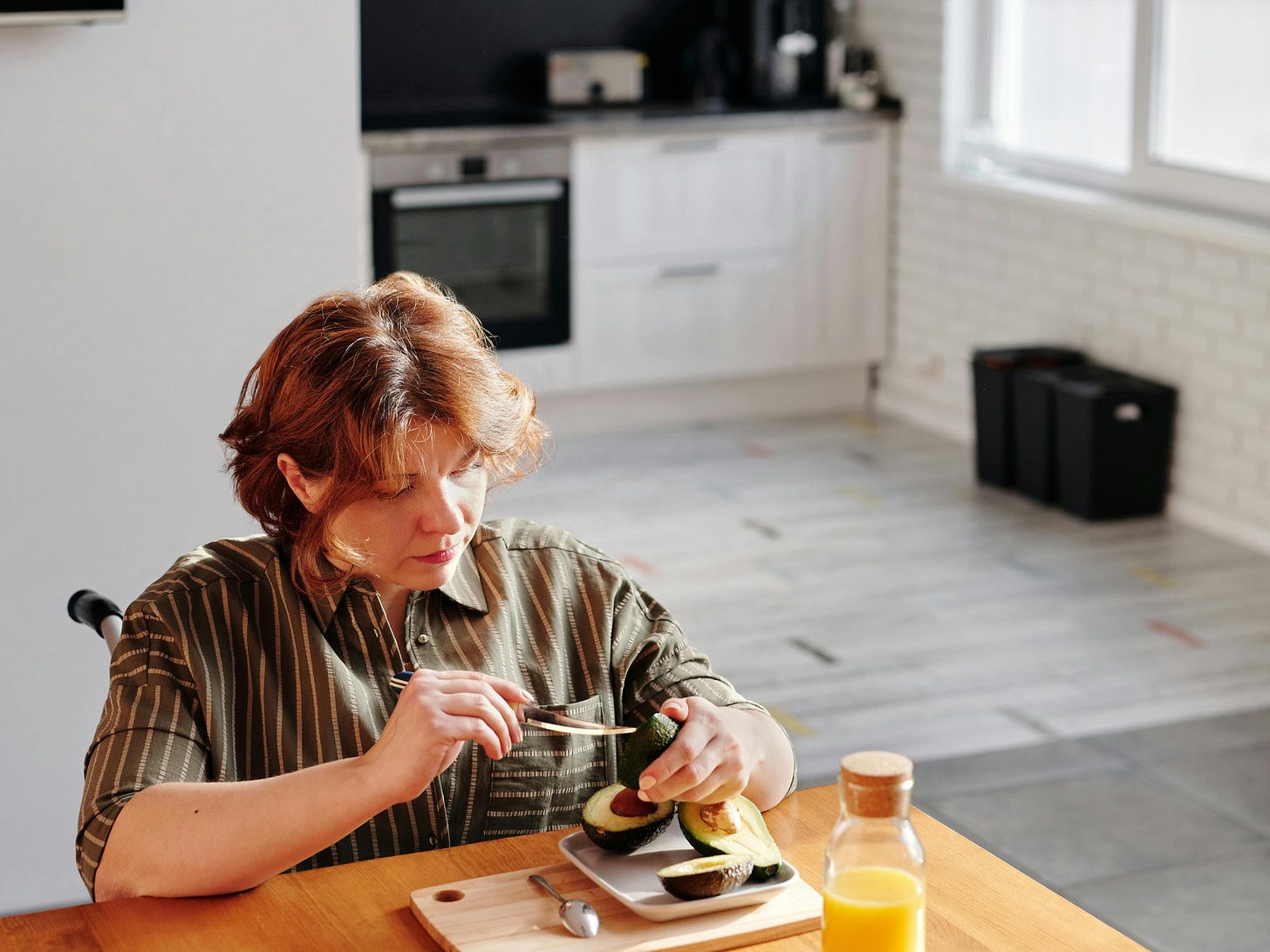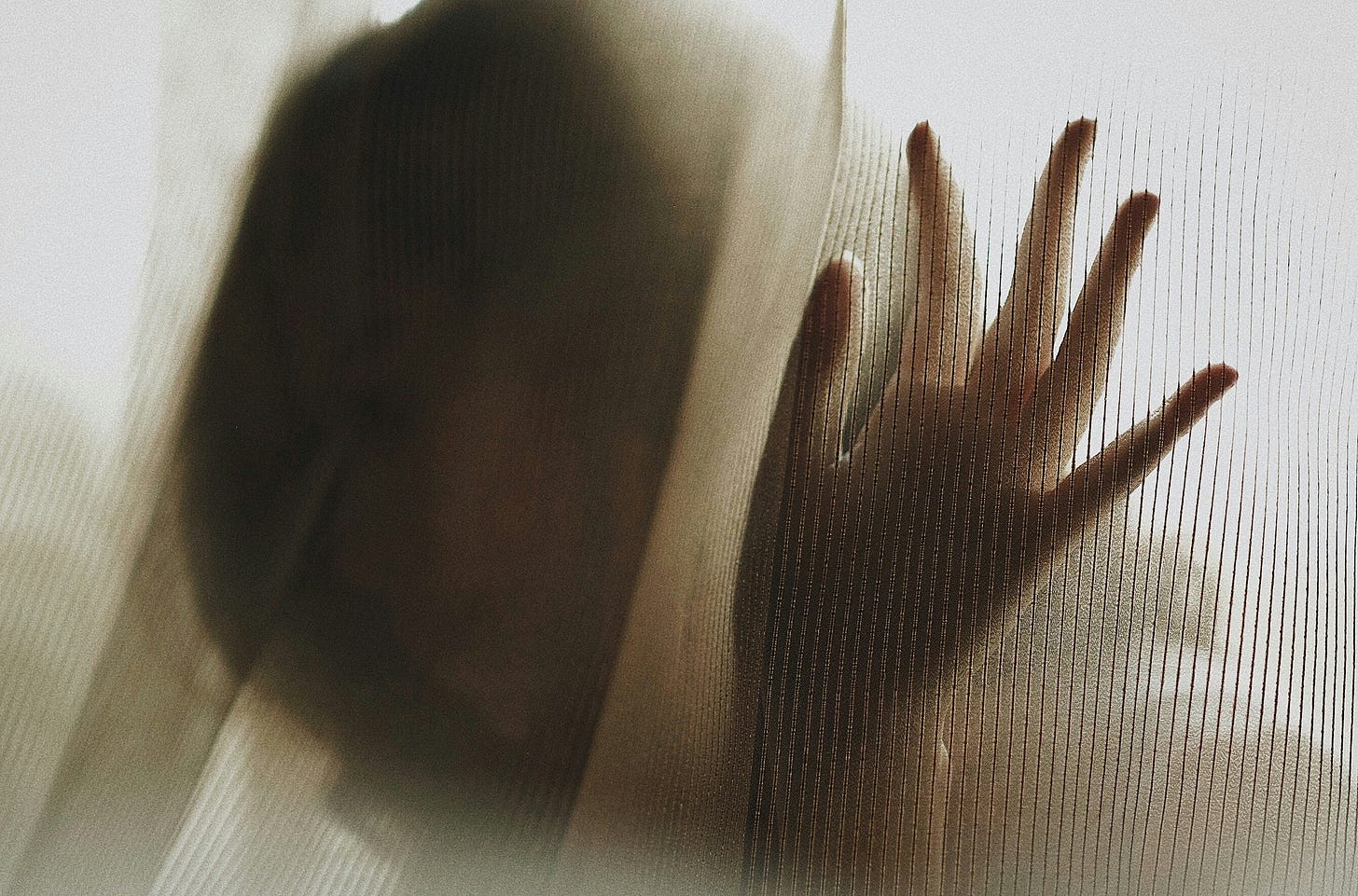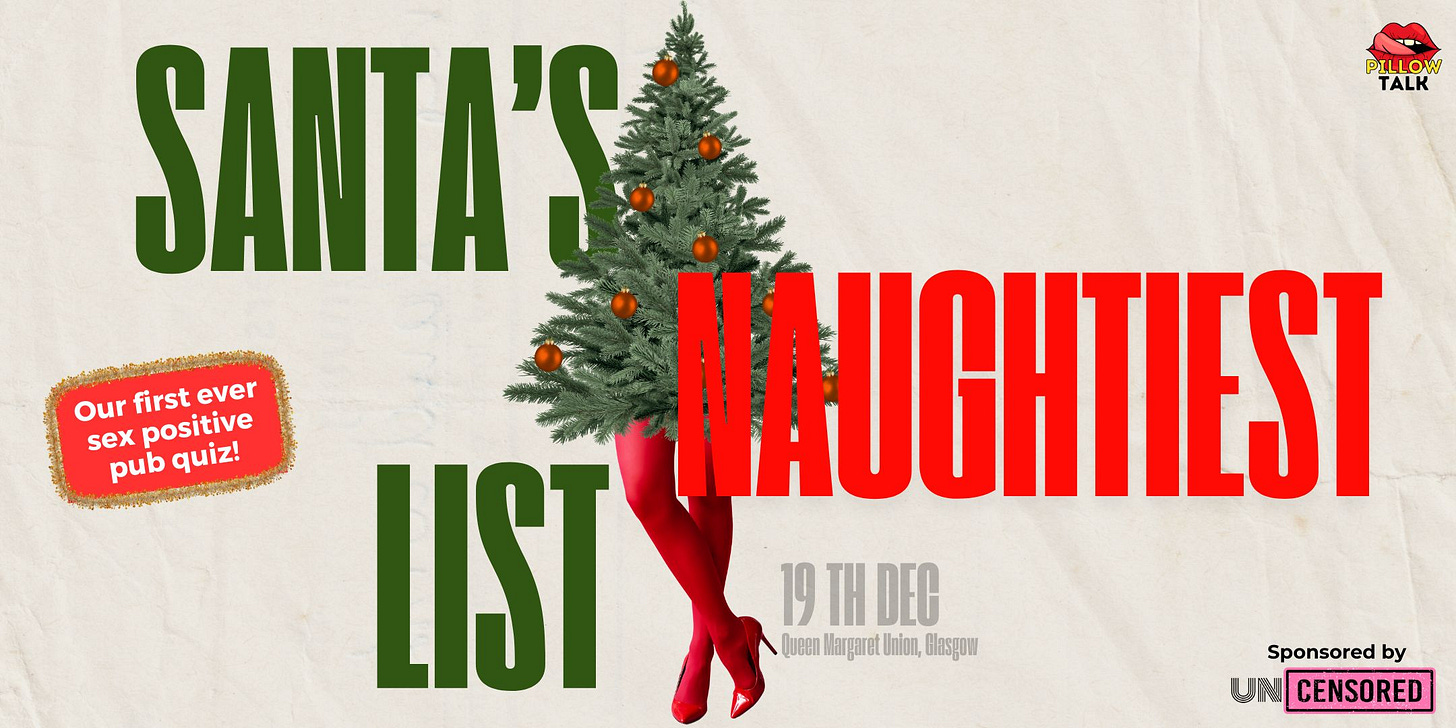‘Who would love someone as broken as you?’: The hidden abuse faced by disabled women in Scotland
As this year's 16 Days of Activism draw to a close, we look at the experiences of abuse faced by disabled women in Scotland and the changes needed to address them
Self-care note: This newsletter talks about gender-based violence and goes into ableism too. If you find this distressing or triggering, remember to take it at your own pace. You may prefer to read small sections, wait until you feel ready to read it all, or choose not to read it at all.
If you are affected by the themes explored in this article, you can reach out to Scotland’s 24-hour Domestic Abuse and Forced Marriage Helpline on 0800 027 1234 email helpline@sdafmh.org.uk; or Rape Crisis Scotland at 08088 01 03 02.
At 45, Kathryn is candid about her journey through years of abuse. “It wasn’t just coercion; I was raped regularly. I just hadn’t realised it yet,” she says, looking back at her relationship with the father of her children. Kathryn speaks with a determination to raise awareness of an issue too often overlooked. “I’m comfortable enough talking about it now,” she says.
Globally, disabled women are twice as likely to experience domestic abuse as their non-disabled peers. For those with learning disabilities, the risks are even higher — 90% report experiencing abuse, and 68% face sexual violence before turning 18. These figures provide a sobering backdrop for It’s All About Control, a report by Zero Tolerance that combines literature review with participatory research involving disabled survivors.
Jenny Wartnaby, one of the study’s authors, explains that these dynamics are rooted in the intersection of ableism and gender inequality. “Perpetrators often exploit vulnerabilities created by societal barriers,” she says. “This isn’t just about individual relationships — these patterns of abuse are amplified by a lack of accessible services and widespread assumptions about disabled women.”
We need a society where disabled women and non-binary people are safe from violence and have equal opportunities to thrive
Kathryn’s story echoes the experiences of countless disabled women, whose impairments are exploited in ways that blur the lines between care and control. Diagnosed with chronic fatigue as a teenager, Kathryn endured an early life marked by her mother’s control. Her health was dismissed as laziness, and her care was micromanaged in ways that undermined her autonomy. “Doctors just did what she said,” Kathryn recalls, explaining how her mother put her on unnecessary medications, like birth control at 11 to make her “quieter.”
Such reproductive control is all too common, Zero Tolerance found, with several participants reporting being prescribed contraception to “keep emotions under control.” These practices normalise compliance and erode autonomy, leaving survivors unprepared to challenge or identify coercion.
For Kathryn, these challenges followed into adulthood. “When I told him about my diagnosis, he brushed it off but later used it against me,” she says of her former partner, who weaponised her health issues to undermine her self-worth. His abuse intensified after childbirth. “He’d say, ‘Who would love someone as broken as you?’ And I believed him.”
“If he looked after me during the day when I was unwell, there was always an expectation of something in return at bedtime,” she adds. Kathryn says it took therapy to fully understand the extent of the harm she endured and to name it for what it was: sexual violence and control.

The ableism underpinning Kathryn’s experiences reflects societal myths that disabled women are passive, asexual, or dependent — narratives that enable abuse to flourish. These stereotypes idealise caregivers as altruistic, making reports of abuse harder to believe.
Dr. Philippa Wiseman, Senior Lecturer at the University of Glasgow and member of the Centre for Disability Research, points out the devastating consequences of these assumptions: “When we ignore the fact that disabled women are capable, meaningful sexual citizens, we don’t protect their sexual and reproductive health. We exclude them from routine sexual health screenings, don’t teach them about consent, and subject them to reproductive control strategies all about managing risk, not wellbeing.”
Reproductive coercion was another facet of the abuse Kathryn experienced. After having twins, she sought sterilisation but faced resistance from doctors. “One asked, ‘What if your husband wants more children?’ It wasn’t about me,” she recalls. Another survivor in the study reported being denied fertility discussions before cancer treatment, reflecting assumptions that disabled women lack agency in reproductive decisions.
Dr. Wiseman highlights the paradox at the heart of this issue: “Disabled women lack bodily autonomy because they are seen to be simultaneously deviant and vulnerable. They’re too vulnerable to be given commensurate education on sex, but they’re also most likely to be targeted for sexual violence.”
Life is joyous now. I know my worth, and I don’t tolerate anything less
Breaking free requires overcoming both personal trauma and systemic barriers. After more than a decade of abuse, Kathryn’s partner left her. “At first, I felt worthless, like he was right and no one would ever love me,” she admits. Therapy became a turning point, helping her recognise the full extent of the control and violence she endured.
Rebuilding her life took time, but Kathryn found strength in community. “I’ve reconnected with old friends and made new ones who understand me,” she says. “Life is joyous now. I know my worth, and I don’t tolerate anything less.”
Zero Tolerance highlights the need for urgent action to tackle these systemic issues. “The Scottish Government must ensure disabled women’s voices are included in all policies affecting them, not just those focused on disability or gender-based violence,” says Wartnaby. “We need proper relationships and sex education for disabled young people, and more research to understand violence against disabled women. Ultimately, we need a society where disabled women and non-binary people are safe from violence and have equal opportunities to thrive.”
If you or someone you know is affected by the issues in this article, several confidential support services are available:
Scotland's Domestic Abuse and Forced Marriage Helpline: Call 0800 027 1234 or visit sdafmh.org.uk.
Rape Crisis Scotland: Accessible support for survivors of sexual violence, including disabled women. Call 08088 01 03 02 or visit rapecrisisscotland.org.uk.
Celebrate the end of the year with us 🎉
📌Queen Margaret Union, Glasgow 📆 19 December 💸 £3pp ⏰7.30-10.30pm
Join us for Santa’s Naughtiest List: A Sex-Positive Pub Quiz! Cheeky trivia, festive fun, and hilarious hosting by Princess Yaddick— whether you’re celebrating Christmas, the end of 2024, or just looking for a cosy night out, this is your chance to come together, share some laughs, and learn something new.
Don’t worry, you don’t need to drink, celebrate Christmas, or be a sexpert to join the fun!
If you have accessibility requests or other queries, send us an email at events@pillowtalk.scot.
Other spicy (and cuddly) events happening soon🌶️
Collage Poetry and Art Workshop. Today, Glasgow.
Celebrating HIV Activism in Glasgow and beyond. 11 December, Glasgow.
Peaceful protest against the Nordic model. 12 December, Edinburgh.
Uncensored Market. 15 December, Glasgow.
Santa’s Naughtiest List: a Sex Positive Pub Quiz! (18+). 19 December, Glasgow.
Curiousathon! a slow mixing event for queers 30 and older. 20 December, Glasgow.






